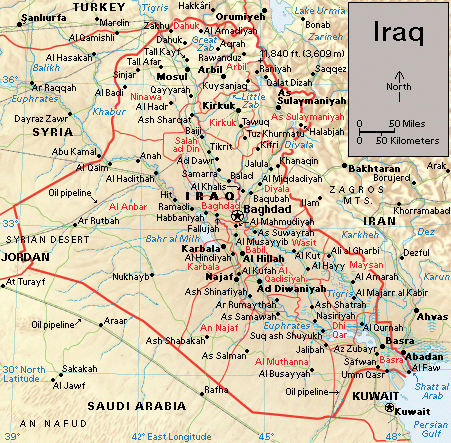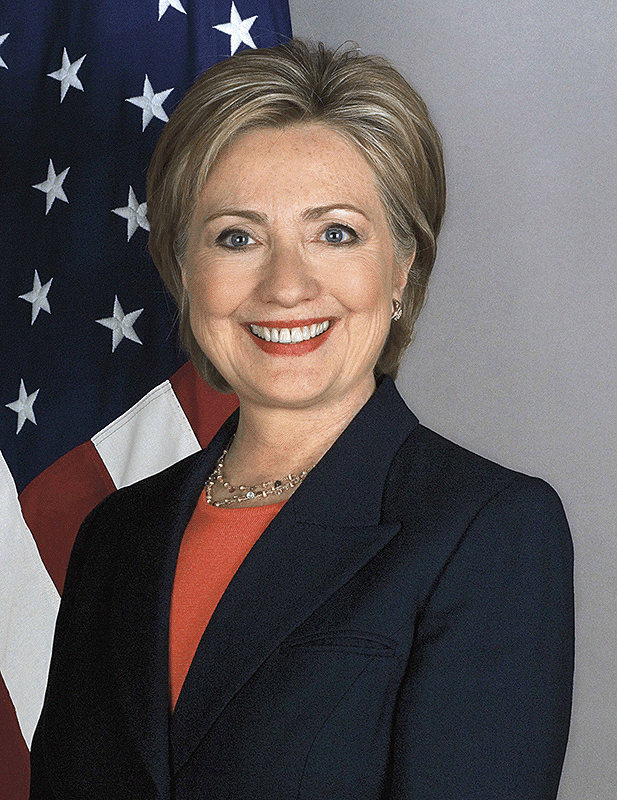John Kerry Meets With Prime Minister of Iraq
Monday, June 23rd, 2014June 23, 2014
United States Secretary of State John Kerry met with Iraqi Prime Minister Nouri Maliki in Baghdad today to discuss the military crisis in Iraq. Sunni militants, including jihadist forces known as the Islamic State of Iraq and Syria (ISIS), have gained control of large areas of northern and western Iraq. In the past two days, militants captured four towns in the predominantly Sunni Anbar province—Anah, Qaim, Rawa, and Rutba. They also captured the airport in Tal Afar—situated between the town of Mosul (which was captured by militants two weeks ago) and the Syrian border. Other territory gained includes: a dam near Haditha that is important to Iraq’s electrical grid; Iraq’s enormous Baiji oil refinery, 130 miles (210 kilometers) north of Baghdad; and border crossings between Iraq and both Syria and Jordan.

Experts report that approximately 70 percent of Iraq's Anbar province, bordering both Syria and Jordan, has been captured by Sunni militants in 2014 (World Book map).
Iraq is in grave danger of breaking apart. Sectarian tensions in Iraq between Sunni and Shi`ite Muslims have greatly escalated over the past months. During the dictatorship of Saddam Hussein, who ruled from 1979 to 2003, Iraq’s Shi`ia majority was politically powerless. When a government was formed in 2006 with Nouri Maliki, a Shi’ite, as prime minister, experts on the Middle East strongly encouraged the new prime minister to make his government inclusive of both Sunnis and Shi’ites. Most experts agree that Maliki did not reach out to include Sunnis in the decision-making process in Iraq. The uprising of Sunnis in Anbar province began at the end of 2013. In January 2014, Sunni militants gained control of both Ramadi and Fallujah.
The disintegration of Iraq has repercussions far past the nation’s own borders. With Sunni militants now in control of border crossings into Syria, military experts fear that supply lines can easily be created between Syria and Iraq. In the civil war in Syria, ISIS has seized territory in Syria and fights against the rule of President Bashar al-Assad. Supply lines between Iraq and Syria would increase the ability of Sunni militants to aid anti-government forces in Syria. ISIS hopes to create a new nation in Sunni-dominated areas of Iraq and Syria.
After meeting with Prime Minister Maliki for some 90 minutes, Secretary of State Kerry assured the government of Iraq of continued U.S. support, providing the Iraqis agreed to form a new and more inclusive government by July 1. Kerry stated, “The future of Iraq depends on decisions made in the next few days and weeks.” About 300 U.S. military advisers are being sent to Iraq later this week.
Additional World Book articles:
- Iraq War
- Kurdistan
- Iraq 2012 (a Back in Time article)
- Iraq 2013 (a Back in Time article)
- Syria 2013 (a Back in Time article)



